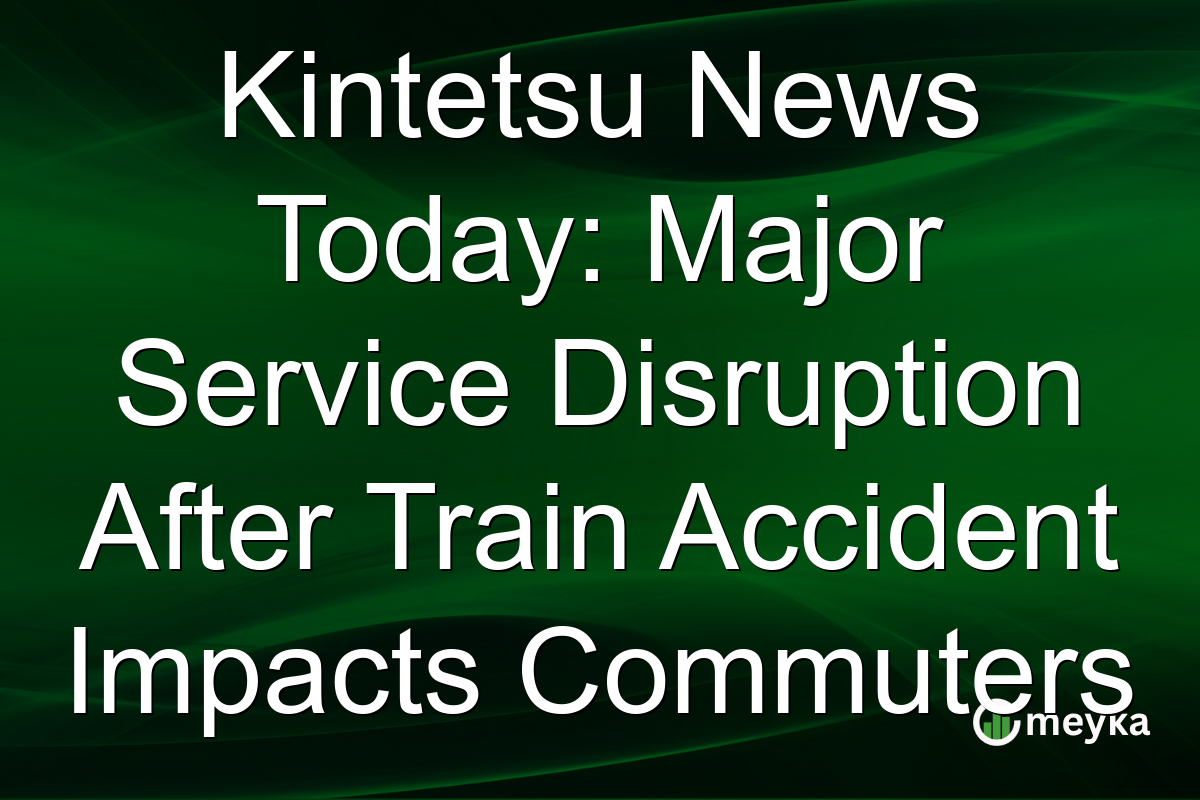Kintetsu News Today: Major Service Disruption After Train Accident Impacts Commuters
Today, a serious incident on the Kintetsu train line caused significant service disruptions, affecting thousands of commuters across the Kansai region. The Kintetsu train accident news has drawn widespread attention, highlighting concerns over Japanese railway safety. This accident, which occurred during peak commuting hours, underscores the operational vulnerabilities faced by major rail operators in Japan’s bustling financial areas.
The Impact of the Kintetsu Train Accident
This morning’s unfortunate event involved a Kintetsu train, triggering a massive service disruption. Commuter lines stretching through key areas of Kansai faced long delays and cancellations. This highlights severe challenges not only for the passengers but also for businesses reliant on tight schedules. According to Reuters, the event has prompted urgent discussions about risk management in Japan’s rail networks. For many, this disruption represents more than just a commuting inconvenience; it poses questions about the resilience and reliability of Japanese railway systems. In a country renowned for punctuality and efficiency, such incidents can erode commuter confidence and business productivity.
Broader Implications for Japanese Railway Safety
The accident brings Japanese railway safety back into focus, pressing authorities to reassess safety protocols. While Japan’s railways are considered among the safest globally, recent events like this Kintetsu service disruption reveal areas needing attention. The industry must consider whether current safety measures are sufficient. Industry watchers are now eying potential regulatory changes that could impact operational costs and investor sentiments in the region. The incident has catalyzed a dialogue about enhancing safety standards, possibly leading to investments in better technology and infrastructure to prevent future mishaps. CNBC suggests that the economic implications may be substantial if delayed commutes become frequent occurrences.
Economic and Operational Impact
The immediate impact of the Kintetsu train accident extends beyond commuter discomfort to potential economic disruption. Affected businesses in the Kansai area, a critical economic hub, face potential revenue losses due to employee delays. Moreover, the Kintetsu service disruption highlights the financial risks rail companies face when infrastructural challenges interrupt service. With transportation being the backbone of economic activity in Japan, any substantial delay can have ripple effects on productivity and corporate operations. Experts suggest this could lead to increased pressure on rail operators to ensure bulletproof logistics, possibly influencing future railway policies and investments.
Investor Sentiment and Market Reaction
As the Kintetsu train accident news circulates, investors are assessing the impact on railway stocks even without immediate financial repercussions. The market’s reaction indicates a cautious approach, with attention on how rail operators address safety and service reliability concerns. While the direct stock impact may be limited, the incident underscores operational risks inherent in the sector. Investors, focused on long-term returns, will be keen to see how quickly Kintetsu and other operators can restore commuter trust and operational stability. The event serves as a reminder of the unpredictability in infrastructure-dependent sectors, urging a re-evaluation of risk management strategies. This could lead to shifts in investment trends within the transport industry.
Final Thoughts
The Kintetsu train accident underscores the critical importance of safety and reliability in sustaining Japan’s economic pace. As railway operators face increased scrutiny, they must balance immediate responses with long-term strategies to strengthen operational resilience. Both investors and commuters alike will be watching closely to see how effectively these challenges are addressed. For those interested in real-time financial insights and predictive analytics, platforms like Meyka offer valuable tools for monitoring developments in sectors like transport infrastructure. Ultimately, the ability to adapt and innovate will define the future of Japan’s iconic railway system.
FAQs
The specific details of the Kintetsu train accident are still under investigation. Early reports suggest a human error may be involved, prompting a review of current safety protocols.
The disruption led to widespread cancellations and delays across Kintetsu lines, significantly impacting thousands of commuters in the Kansai region, especially those reliant on precise schedules for work.
The incident highlights potential vulnerabilities in Japan’s railway safety standards, pushing for a reassessment of protocols and potentially leading to regulatory changes to enhance safety measures.
Disclaimer:
This is for information only, not financial advice. Always do your research.






